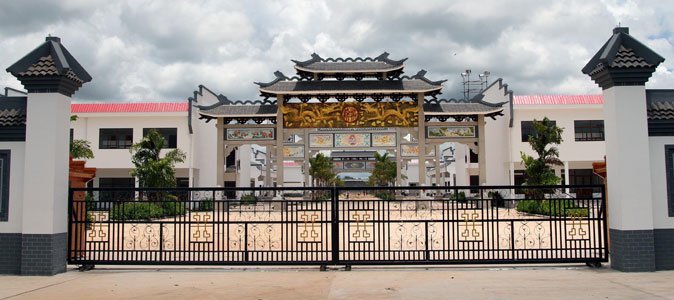
CHINA has spread its tentacles over most of Zimbabwe’s productive sectors in recent years, raising the spectre of re-colonisation.
BY NQABA MATSHAZI
The Far East country is involved in mining, agriculture and construction among other sectors, but critics are sceptical at China’s involvement in the Zimbabwean economy.
Like a colossus, Chinese firms have a grip on every aspect of the economy, with Tien Ze having sway in agriculture.
Anjin has spread its wings from mining to construction, while Sino-Zimbabwe Industrial Development Corporation is spearheading investments in different sectors like steel manufacturing and cement production.
Often accused of corruption and neglect of Zimbabwe’s labour laws, most Chinese firms continue working as if oblivious to the growing criticism and resentment.
For example despite loud protests, Anjin, a Chinese company went ahead constructing a mall and a hotel on a designated wetland, with environmentalists lamenting that this could have an effect on Harare’s future water supplies.
Probably the height of the nationalist and anti-China sentiment was at the beginning of the last decade where stickers and posters were all over the show, decrying the entrance of the Chinese into the Zimbabwean economy.
- Chamisa under fire over US$120K donation
- Mavhunga puts DeMbare into Chibuku quarterfinals
- Pension funds bet on Cabora Bassa oilfields
- Councils defy govt fire tender directive
Keep Reading
“Ipovo siyalile, ithi phansi ngama zhing-zhong, Povo yaramba irikuti pasi nemazhing-zhong” (ordinary people are rejecting poor-quality Chinese products), the stickers read.
As if it to illustrate their aversion to Chinese goods, Zimbabweans have coined names for them such as fong kong and zhing zhong, but the Orientals are unfazed and instead are deepening their investments in Zimbabwe.
Despite the resentment, China’s Economic and Commercial Counsellor, Han Bing maintains the negative perception of China in Zimbabwe was due to a media onslaught on the country.
‘western media perpetuating lies’
China’s Economic and Commercial Counsellor Han Bing said, “There is a lot of misinformation. The media is not fact-checking and there are sustained waves of attack on us.
”The idea of recolonisation is particularly being perpetuated by the Western media. They concentrate on the negative side and totally ignore the good that we have done.”
Bing pointed out the positives that China had brought to Zimbabwe, arguing that since the country got involved in agriculture, the price of tobacco had kept rising.
The price of tobacco this year was the highest in recent memory, he said.
‘The country’s economy is being disregarded’ The Economic and Commercial Counsellor (ECC) said between 2008 and 2010 China invested between US$35 million and US$45 million but in 2011 alone the country invested US$460 million, thanks to Anjin.
But the question remains, whether this capital injection is any good for Zimbabwe.
The government was recently involved in a stand-off with a Chinese firm over the construction of a hotel and conference centre in Victoria Falls. The company wanted to bring all materials from China, while the government insisted that construction materials should be sourced from Zimbabwe to create jobs and boost the economy.
Due to the stand-off, the hotel and conference centre were not built, with critics pointing out that this was evidence of China’s disregard for the Zimbabwean economy.
A recent book by the Southern African Resource Watch (SARW), Win-Win Partnership? points out that Chinese companies in Zimbabwe violated the country’s labour laws with impunity because they are protected by the country’s leadership.
An economist, Itai Zimunya is quoted saying: “At the heart of Chinese investment in the country is not Zimbabwe’s but Chinese development, with benefits of infrastructure and employment being peripheral benefits”.
Last year in a report titled A preliminary mapping of China-Africa knowledge networks, Tatiana Carayannis and Nathaniel Olin argued that there was a dearth of knowledge on China’s involvement in Africa and probably this explained the resentment.
“Due in part to a research policy gap and in part to economic and political disparities, Africa has limited capacity to define its China strategy and position itself to take maximum advantage of Chinese growth,” they wrote.
“Given the dearth of knowledge in much of Africa and elsewhere about China — its history, culture, its foreign and domestic policy drivers — the conversation at best ends there, or at worst, continues with a series of truisms and clichés, either of the drawbacks or the promises of Chinese engagement in Africa.”
In conclusion, Bing said Chinese involvement in Zimbabwe was still very nascent, compared to Botswana, South Africa, Zambia or Mozambique.
“China entered Zimbabwe quite late,” he said. “We increased our involvement mainly after 2007.”
Bing said there was a huge cultural gap between Zimbabwe and China and this was often a cause of conflict. He however, urged Chinese firms to respect local customs and laws.











